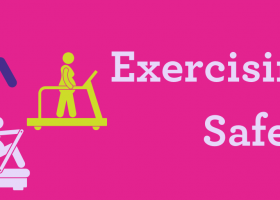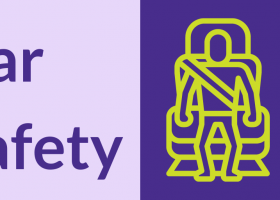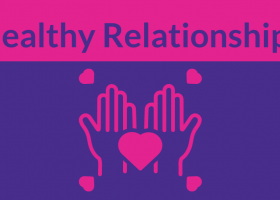Breastfeeding

With every new baby, it’s one big decision after another. For something so small they’re pretty complicated, but you’ve got this. You’re a pro!
Deciding to breastfeed your baby is another big decision, and it’s an important one. If you aren’t sure if it’s right for you, check out some of the benefits of breastfeeding from the American Academy of Pediatrics.
Nobody’s saying it’s easy. Whether this is your first or fourth child, breastfeeding can be difficult. If you are having a hard time, you can work with a lactation consultant like La Leche League. It’s definitely worth all of your hard work!
Tips for Breastfeeding:
- Find a comfortable position. The way you hold your baby can make breastfeeding and latching easier. There are different ways to hold your baby during breastfeeding. Mayo Clinic has some pictures to show you these different options. One way is to place your baby so that his or her body is snugly against you with their stomach pressed against your stomach. Your baby’s head should be in line with its body.
- Tilt your baby’s head back. Tilt your baby’s head so that his or her chin touches your breast under the areola (dark area around your nipple). Your baby’s head will need to be tipped back.
- Place the areola in your baby’s mouth. When your baby’s mouth is opened wide, try to get as much of the lower portion of the areola as you can in your baby’s mouth.
- Baby’s lips should be turned out. Your baby’s lips should be turned out like they are making fish lips or giving you a kiss. If they don’t look like this, use your finger to pull the bottom one down and open up the top one more.
- You should hear deep and steady sucking. Your baby should be sucking in a deep and steady rhythm. You should hear your baby swallowing regularly.
- No clicking noises. You should not hear clicking or smacking noises. If you hear these noises, reposition your nipple in your baby’s mouth.
- Baby should have rounded cheeks. Your baby’s cheeks should be rounded and not puckered inward.
- You should feel comfortable. Your nipple should feel comfortable after the first few minutes of feeding your baby. Any discomfort that you feel should go away after getting the baby latched on correctly. If you continue to feel pain or discomfort, you may need to reposition your nipple or your baby.
More information on proper breastfeeding and a visual guide can be found on a website by WomenHealth.gov.
Involving your family in breastfeeding:
Breastfeeding isn’t necessarily something people can assist with, but people like to know how they can be helpful. Your family can help you with other tasks to support you while you breastfeed.
- There are certain places on the baby that if you gently touch or massage, it can urge the baby to want to breastfeed. Have a family member or child help you by:
- Making gentle circles in front of baby’s ears before feedings to relax the lower jaw.
- Making gentle circles around the top of your baby’s head to begin the suckling at the breast.
- Gentle, repetitive touches to the palm of your baby’s hand or sole of your baby’s foot to stimulate suckling.
- Hold the baby. Other family members can hold the baby while you shower or take care of other things for yourself.
- Help with chores. Have family members help you by doing laundry, housekeeping, and take care of meals. This gives you some time to rest and recover and focus on feeding the baby.
- Limit interruptions. Keep visitors and phone calls to a minimum so that you and your baby have plenty of time without feeling rushed.
- Teach them to feed using a bottle. If you pump, take the time and patience to show your other children and family members how to properly to feed baby with a bottle. This will be of great way for others to lend you a hand and to bond with the baby.
Before you give birth, you may want to begin thinking about if you want to breastfeed your baby. Not only does breast milk give your baby all the nutrients he or she need for the first 6 months, it can also protect them from getting sick. Did you know breastfeeding can also help protect you from certain cancers? Best of all, it’s is free!
Some of the best reasons to breastfeed
- Always ready. Breast milk is always ready to go. No warming or waiting needed to feed your hungry baby.
- Easier to digest. Breast milk is easier for your baby’s stomach to handle.
- Filled with the right nutrients. Breast milk has the right balance of nutrients for your baby to grow and develop.
- Complete diet. Breast milk gives your baby all the food he or she needs for the first 6 months of life.
- Protect from illness. Breast milk gives your baby antibodies that help protect your baby from illness.
- Free. Breastfeeding is free. Feeding your baby formula can cost you more than $1,500 a year (or about $30 a week).
- Lose weight. Women who breastfeed tend to lose weight more quickly after giving birth. Breastfeeding uses 200-500 extra calories per day because your body is making milk.
- Lowers chance of cancers. Breastfeeding reduces a woman’s risk of ovarian, cervical, and breast cancer.
- Protect against diabetes. Breastfeeding may reduce the risk of diabetes for both the mother and baby.
- Bonding. Breastfeeding may help you and your baby feel close.
Many women are unsure about breastfeeding. That’s okay. It can be a big decision, especially if you don’t know what to expect. It may help to talk to someone who breastfed their baby to see what they thought about it.
Breastfeeding concerns and solutions
Below are some common concerns that women face, and tips on how deal with them:
- Concern: I’m not very confident about breastfeeding. I’m not sure I’ll know what to do.
Solution: If you have trouble getting started with breastfeeding, ask for help right away. Ask your prenatal care provider. You can also get help from a lactation specialist or a La Leche League counselor. These people are trained to provide education, information, support, and encouragement to women who want to breastfeed. You can also talk to a WIC (Women Infant and Children) nurse to help you while you are learning.
- Concern: I’m embarrassed to breastfeed in public.
Solution: Receiving blankets can help cover you and your baby while feeding. If possible, you can also pump milk in advance. Then you can feed your baby using a bottle in public.
- Concern: I’m worried that what I eat and drink will go to my baby through my milk.
Solution: If you eat healthy, nutritious foods, drink plenty of water, and get some physical activity, you will most likely be fine. Avoid smoking, drinking alcohol, and using drugs. Ask your health care provider before taking medications.
- Concern: My family and friends are not very supportive of my decision to breastfeed.
Solution: Tell your family and friends how healthy breastfeeding is for you and your baby.
- Concern: It hurts.
Solution: The longer you do it, the less it will hurt. Ask your prenatal care provider, a lactation specialist, a La Leche League counselor, or a WIC nurse to help you while you are learning.
- Concern: I don’t want to be the only person who can feed the baby.
Solution: Pump your breast milk into a bottle for others to feed the baby. This will give you time to rest.
- Concern: I have a medical illness or I’m afraid that I won’t be able to breastfeed with the medications I take.
Solution: Ask your health care provider if you can breastfeed your baby.
Tips for Dad:
You may not be able to breastfeed, but you can still be a part of the bonding process. You can practice kangaroo care.
- Take off your shirt so that your bare chest is showing.
- Place your baby, wearing only a diaper and hat, on your bare chest in an upright position.
- Cover the baby with your shirt or a blanket. Be sure not to cover the baby’s mouth or nose.
- Now simply relax and enjoy this unique bonding experience.
- Let your baby rest. This is not a time to play with your baby.
Local Resources
- Black Mother’s Breastfeeding Association– is a monthly support group for moms on the Eastside and Westside of Detroit.
- St. John Mother Nurture Project is a support group for moms whether they are breastfeeding or not.
- Henry Ford Health System’s International Board Certified Lactation Consultants
- Oakwood Healthcare System’s Lactation Center
- WIC (Women Infant and Children) nurse




